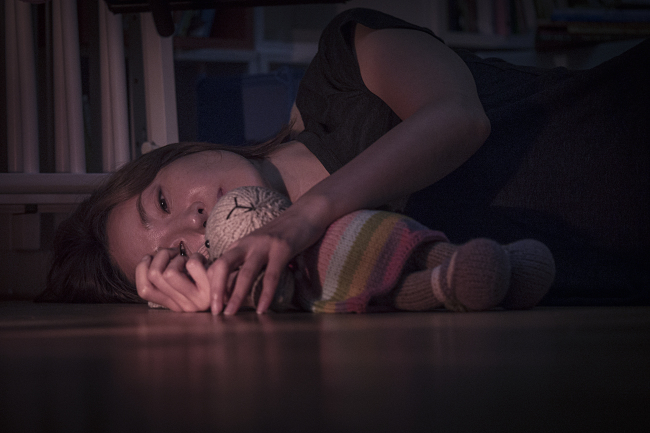Female-led films and storylines will likely be a rarity on the big screen in 2017. Korean cinema this year, similar to previous years, seems set to be rife with political thrillers that critique its players’ individual greed and ambition, while focusing on male characters.
According to tentative schedules released by some of Korea’s major film distributors CJ Entertainment, Lotte Entertainment, Showbox and Next Entertainment World, the majority of films awaiting release in the upcoming months are crime thrillers or deal with political conspiracies.
Next Entertainment World’s “The King,” which hits Korean theaters Wednesday, features Zo In-sung as a ruthless prosecutor who claws his way to the top. CJ Entertainment will release “Fabricated City” in February, about a man taking revenge after being framed as a murderer. Similar titles will crowd theaters in the first half of 2017, almost all directed by male filmmakers and shedding the limelight on male protagonists.
 |
Uhm Ji-won stars as a mother whose daughter has been kidnapped in “Missing.” (Megabox Plus M) |
Industry officials say it is natural for film producers and distributors to respond to viewers’ demands. Though political thrillers have always been a fixture in Korean cinema, the box office hits of 2015’s “Inside Men” and “Veteran” have led to a newfound boom of the genre that seems set to continue for awhile, says programmer Jo Hye-young of the Seoul International Women’s Film Festival.
“It’s a negative cycle,” she said. “In order for films with diverse views and characters to hit the theaters, investors have to be convinced that such films will make money. For such films to make money, they have to be screened in a lot of theaters, and viewers have be exposed to them frequently. But investors are currently sticking to familiar scripts that they think will guarantee success.”
The five best-selling movies of the 2016 box office were “Train to Busan” at 11.5 million tickets, “A Violent Prosecutor” at 9.7 million tickets, “The Age of Shadows” at 7.5 million tickets, “Tunnel” at 7.1 million tickets and “Operation Chromite” at 7 million tickets, according to year-end statistics released by the Korean Film Council. None of these were helmed by female directors or are led by female protagonists.
But Jo says a growing portion of Korean viewers are voicing their fatigue of male-dominated worlds on social media.
“It’s difficult to quantify these opinions, but articles and reviews we monitor online seem to indicate that Korean viewers will, if not now, soon be ready for more diverse stories,” she said.
Meanwhile, last year’s Korean cinema was intermittently scattered with films spotlighting women; some film industry officials even called it a “watershed” year.
Son Ye-jin starred as Deok-hye of Joseon in “The Last Princess,” embodying Japan’s occupation of Korea in the life of a tortured princess. Director Park Chan-wook’s female romance-thriller “The Handmaiden” received international praise, premiering at Cannes and nabbing the best foreign-language film prize at the Lost Angeles Film Critics Association Awards last month. “Bacchus Lady” focused on the life of an elderly woman turning tricks for a living, while “Familyhood” starred Kim Hye-soo as a self-centered actress who, disillusioned by false relationships, decides to have a baby on her own.
A few female directors also took the helm, tracing the flow of their heroines’ emotions.
Lee Kyoung-mi dealt with the extremes of maternal emotion in “The Truth Beneath,” while Lee Eon-hie’s “Missing” showed an unlikely reconciliation between a mother and the kidnapper of her child.
Despite these efforts, the percentage of films in cinemas helmed by female directors has steadily declined in the past five years, from 10.7 percent in 2011 to 5.2 percent in 2015, according to statistics released by the Seoul International Women’s Film Festival last June.
During the same period, the indie film scene has presented a different story. Of works submitted to the Seoul Independent Film Festival, which took place last December, some 45 percent were directed by women, according to the film fest’s statistics.
“Not all independent film directors aim to make commercial movies,” said director Kim Dong-hyun of SIFF. “But this huge gap (between male and female directors) signifies that women directors just aren’t given a chance (in mainstream cinema).”
By Rumy Doo (
doo@heraldcorp.com)




![[Weekender] Korea's traditional sauce culture gains global recognition](http://res.heraldm.com/phpwas/restmb_idxmake.php?idx=644&simg=/content/image/2024/11/21/20241121050153_0.jpg)



